If you love Vietnamese cooking then you need to make this recipe ASAP! Vietnamese Pickled Carrots and Daikon are slightly sweet, super punchy and incredibly flavor-packed! Serve alongside grilled meats, noodles, banh mi sandwiches and more.
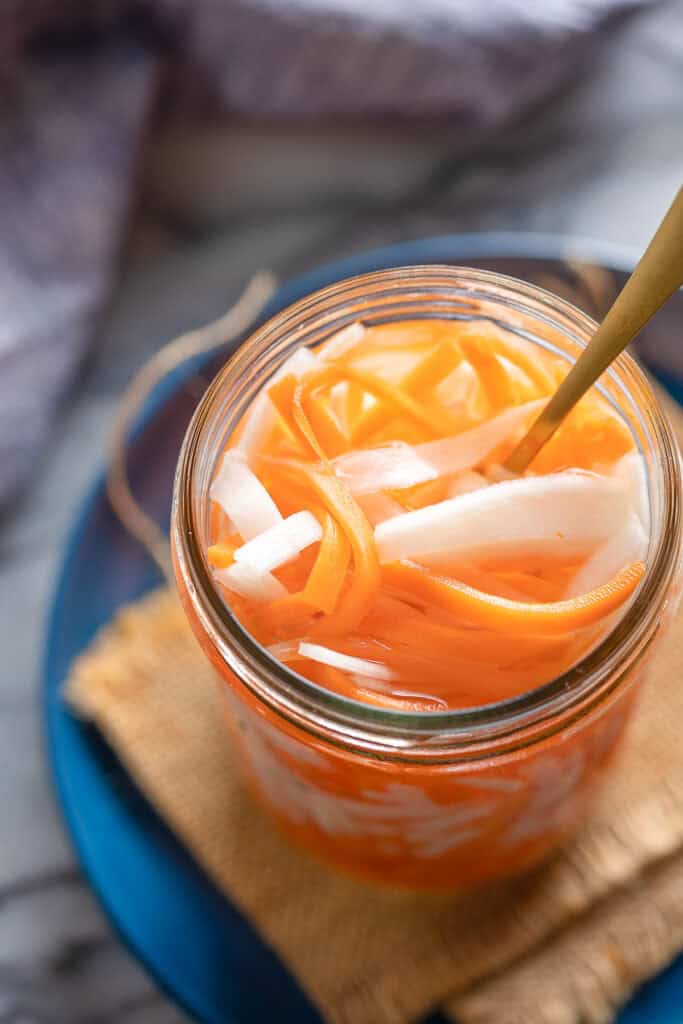
⭐why Make It⭐
- Easy: This recipe comes together quickly & easily without much fuss. Even if you don’t own a mandoline slicer or julienne peeler you can still prep the veggies without too much work.
- Versatile: Not just great in traditional Vietnamese dishes! Brighten up burgers, sandwiches, noodle salads, grilled meats and more with these pickled vegetables.
- Delicious: Compared to Western dill pickles, Vietnamese style pickles are a bit more sweet and mild. Still vinegary, but not quite as sharp which is why they work so well in so many dishes.
Do Chua – ‘Sour Stuff’
Do Chua basically translates to ‘sour things’ or ‘pickled stuff’. Carrots and daikon are the usual go-to root vegetables used as they maintain a nice and crunchy texture even after pickling, but you can add or swap other veggies just as well.
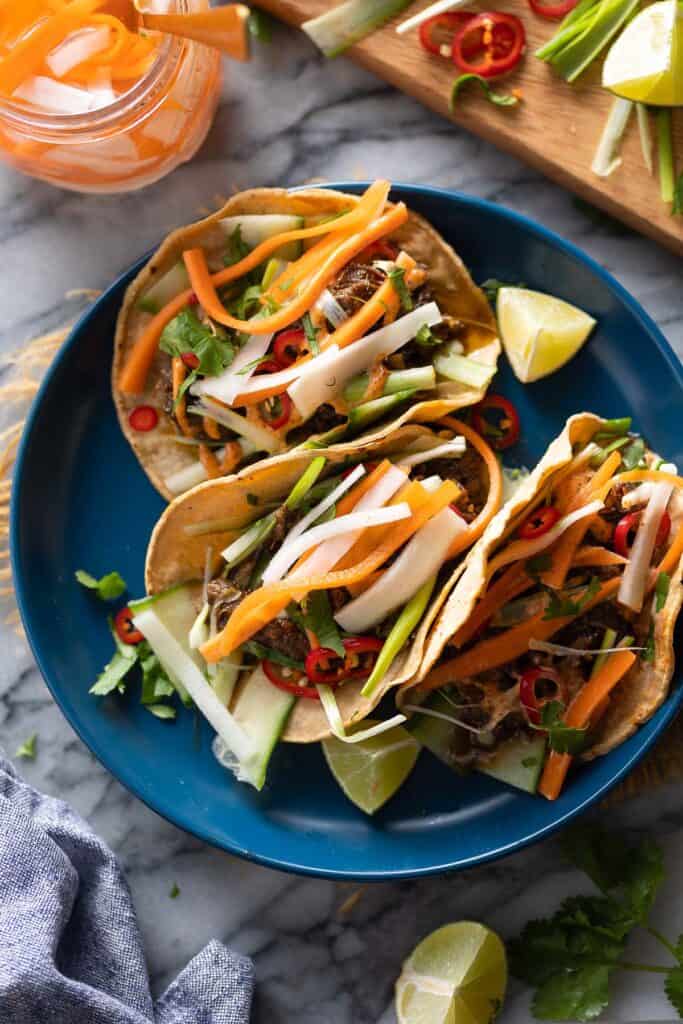
Ingredients
- Carrot & Daikon: This recipe uses a 1:1 ratio of carrots and daikon, but you can adjust the amounts depending on what’s available, affordable and preferable.
- FYI – Daikon = Mooli or Chinese Turnip: Daikon is the Japanese for ‘big root’ – it’s just a big white radish. Depending on where you live, you might find it listed as mooli in grocery stores.
- Salt & Sugar: Salt helps draw out excess moisture from the veggies and sugar is a natural preservative. Both of these will also help tone down the acidity of the vinegar creating a balance of sweet, salty and sour flavors.
- Water & Vinegar:White rice vinegar (aka rice wine vinegar) is quite mild and delicate compared to most other vinegar types. Water also tones down the vinegar liquid while increasing the pickling liquid volume. You can adjust the water to vinegar ratio if you like. Simply decrease the amount of water and increase the vinegar by the same amount.
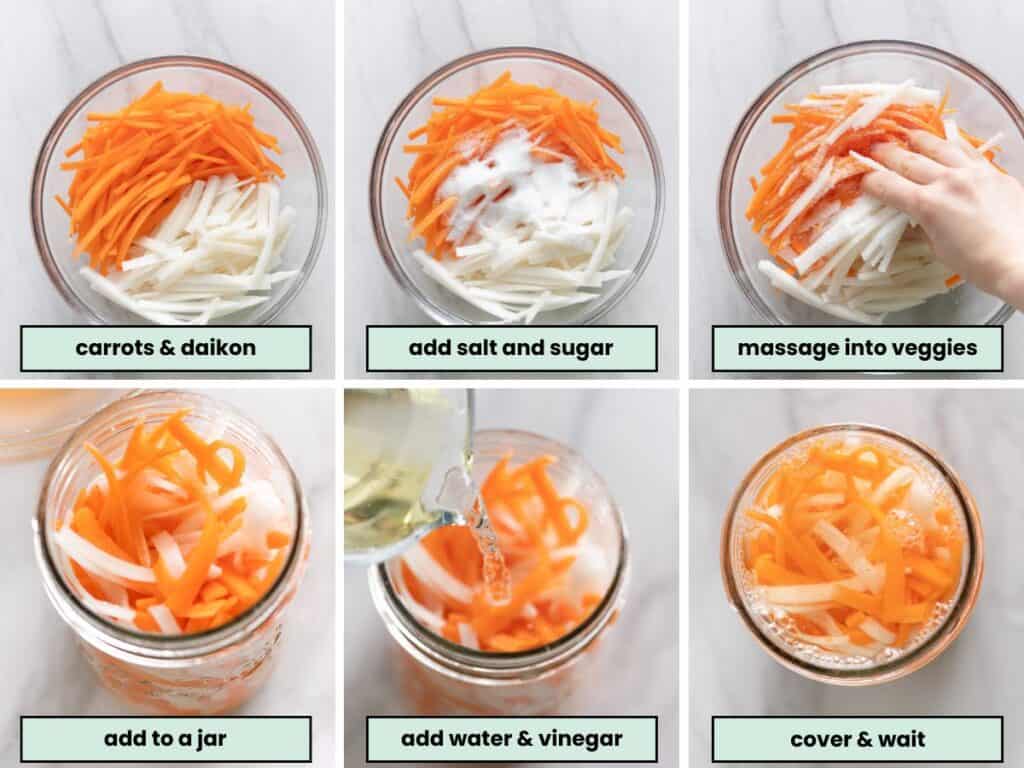
Substitutions Additions
- Make it Spicy: Add fresh, sliced chili peppers like serrano, bird’s eye or jalapeño.
- Cucumber: I recommend you halve the cucumber and scoop out the seeds first then slice up as you would the carrot on daikon.
- Vinegar: White vinegar is a great option if you like your pickles with a sharper, more pungent flavor. Apple cider vinegar is another good option that will add a sharper, sweeter flavor.
- Turnip: If you can’t find daikon you can try this with turnip instead. Turnip has an earthier, more mild flavor than daikon, but still a great option. You can also use small radishes.
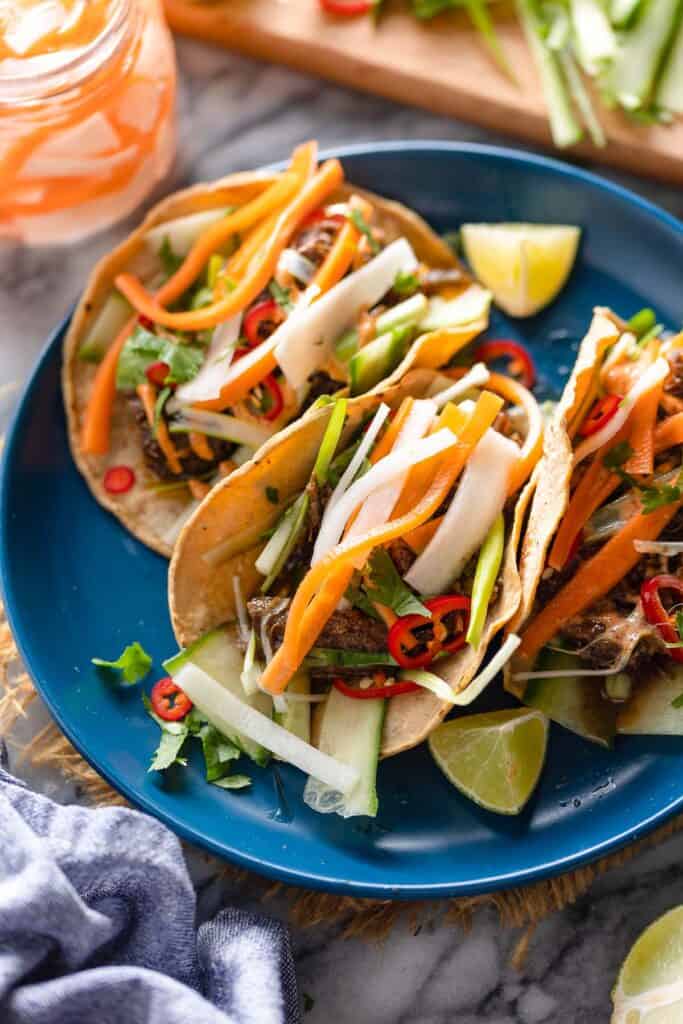
Serving Suggestions
Do chua is a key ingredient in a variety of Vietnamese dishes, but worth adding to so much more!
This makes a great addition to noodle bowls, spring rolls, hot dogs, burgers and even tacos! If you like the look of the tacos above, they’re made with my Vietnamese Five Spice Pork (instant pot recipe).
Enjoy!
Let me know if you try this Vietnamese Pickled Carrots and Daikon recipe! Leave a comment and review with your thoughts. I always appreciate the feedback and serving suggestions that you come up with!
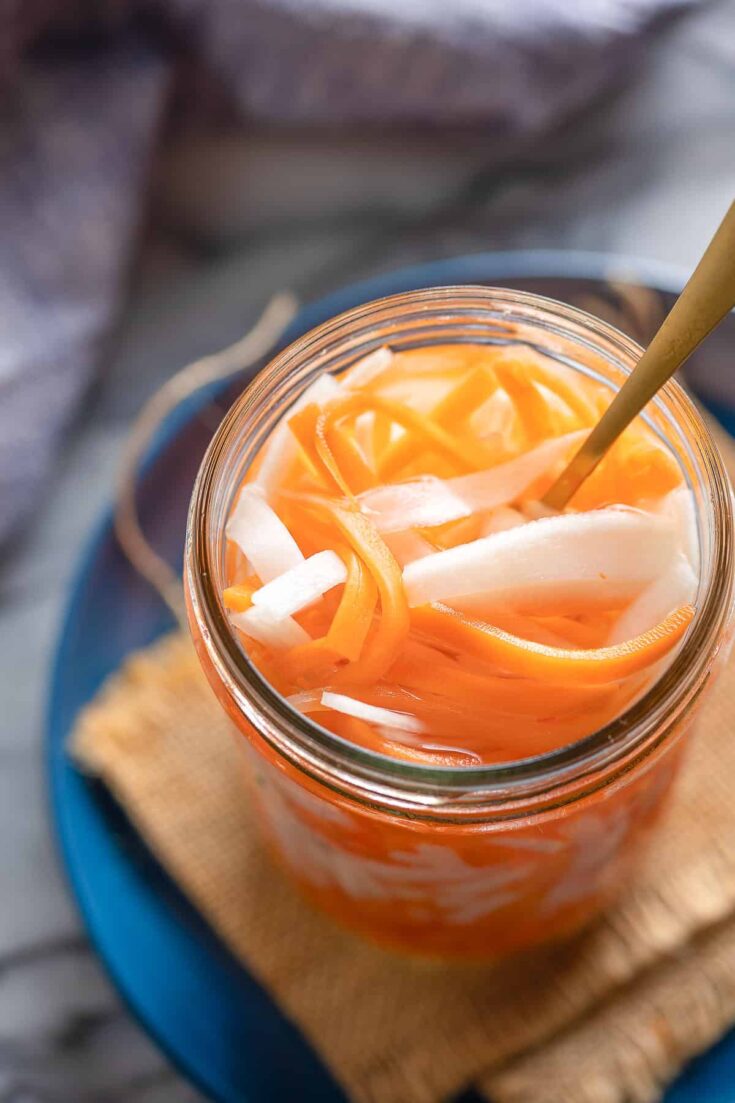
Vietnamese Pickled Carrots and Daikon
Sweet, salty and perfectly punchy - perk up your salads, sandwiches, noodle bowls and more with this Vietnamese Pickled Carrots and Daikon recipe!
Ingredients
- 1/2 lb carrots, cut into thin match sticks (226g)
- 1/2 lb daikon, cut into thin match sticks (226)*
- 1 tsp kosher salt or sea salt (10g)
- 1/4 cup sugar (50g)
- 1 cup water (240ml)
- 1/2 cup rice vinegar (120ml)
Instructions
- Combine carrots, daikon, salt and sugar in large mixing bowl. Use your hands to massage the salt and sugar into the veggies until the sugar has dissolved. You should notice excess liquid at the bottom of the bowl.
- Transfer the carrot and daikon to a large mason jar or container with an airtight lid. Leave behind the excess liquid in the bowl.
- Add water and vinegar to the jar. if needed, add more water and/or vinegar to fully cover the vegetables. Secure the lid then shake the jar to mix.
- Place in the fridge and leave at least 2 hours for a quick pickle - overnight is better. The longer you give it the stronger the flavor.
- Keep stored in the refrigerator in an airtight container up to 2 months.
Notes
- Veggie Prep: For fast and easy prep, use a julienne peeler OR use a mandoline slicer to cut the vegetables into thin strips, then use a knife to cut into thin sticks.
- Ratios: Feel free to adjust the amount of carrots and daikon depending on preference and availability. Just make sure that you cover all the veggies in the pickling liquid.
- Other Daikon Names: If you can't find 'daikon' look for 'mooli' or 'Chinese radish'.
- Sterilisation: Refrigerator pickles don't require sterilised equipment like canned pickles, but you can if you'd like.
- Jar Size: I used a 750ml-825 ml wide mouth jar which ended up being the perfect size though this may vary depending on how you cut your vegetables.
- Salt: Avoid table salt and salts with anti-caking agents. The additives are not water soluble which is result in a cloudy brine.
Shop this Post
As an Amazon Associate and member of other affiliate programs, I earn from qualifying purchases.
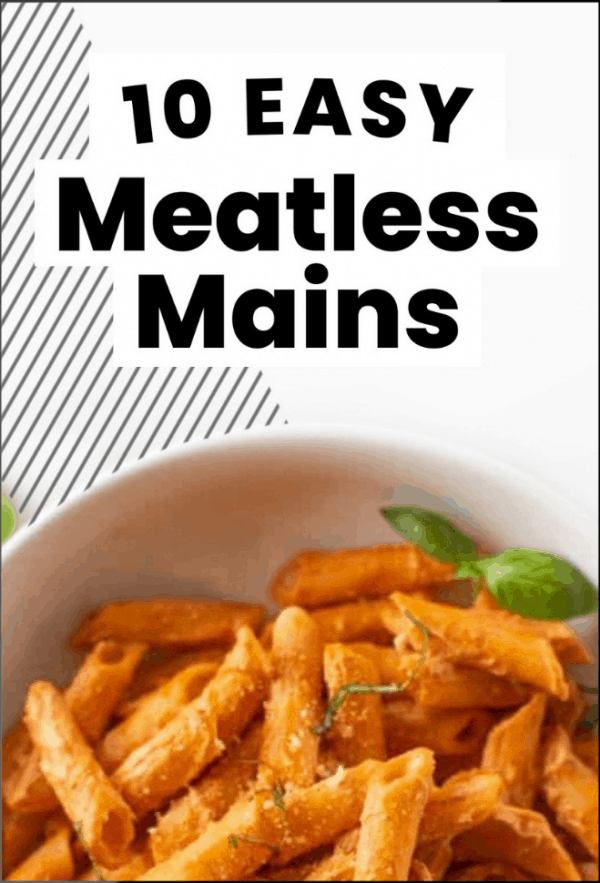



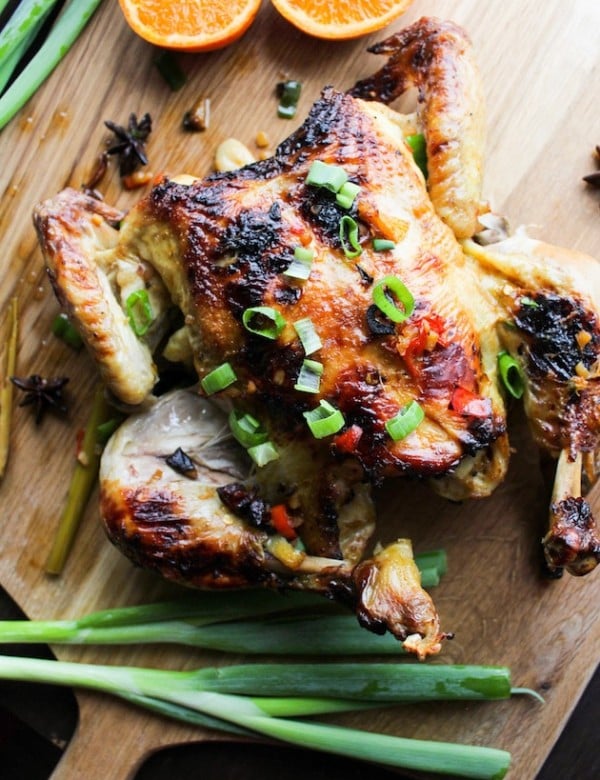
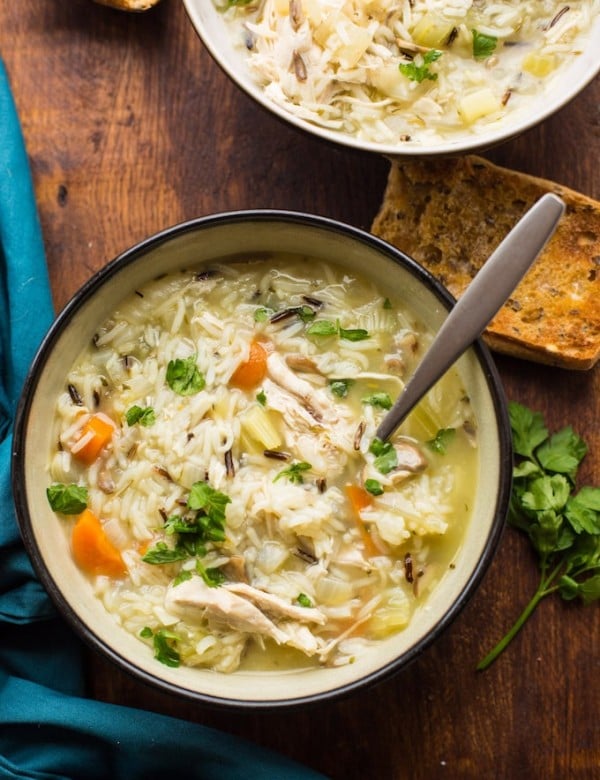
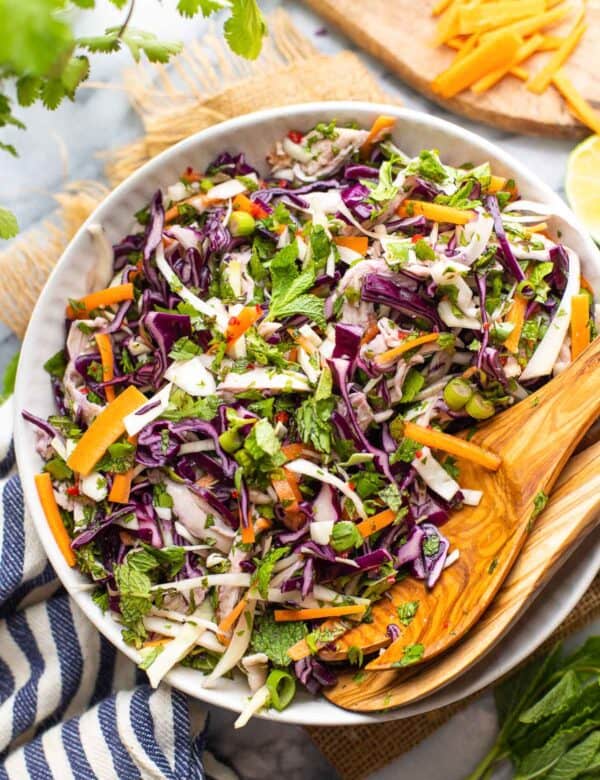
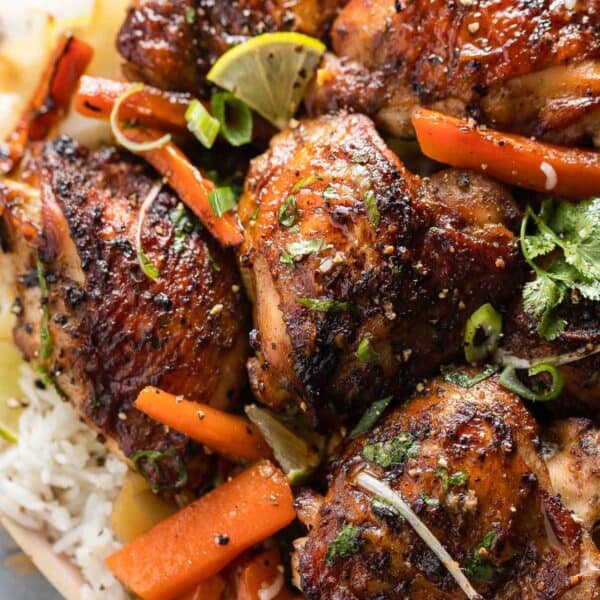
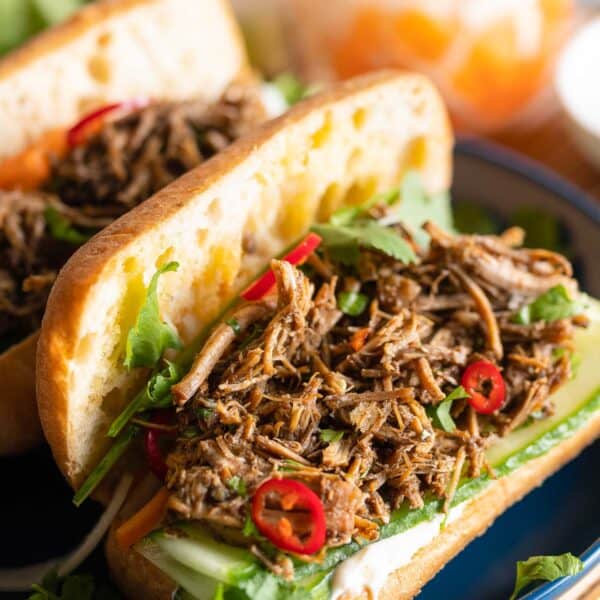
Leave a Review!